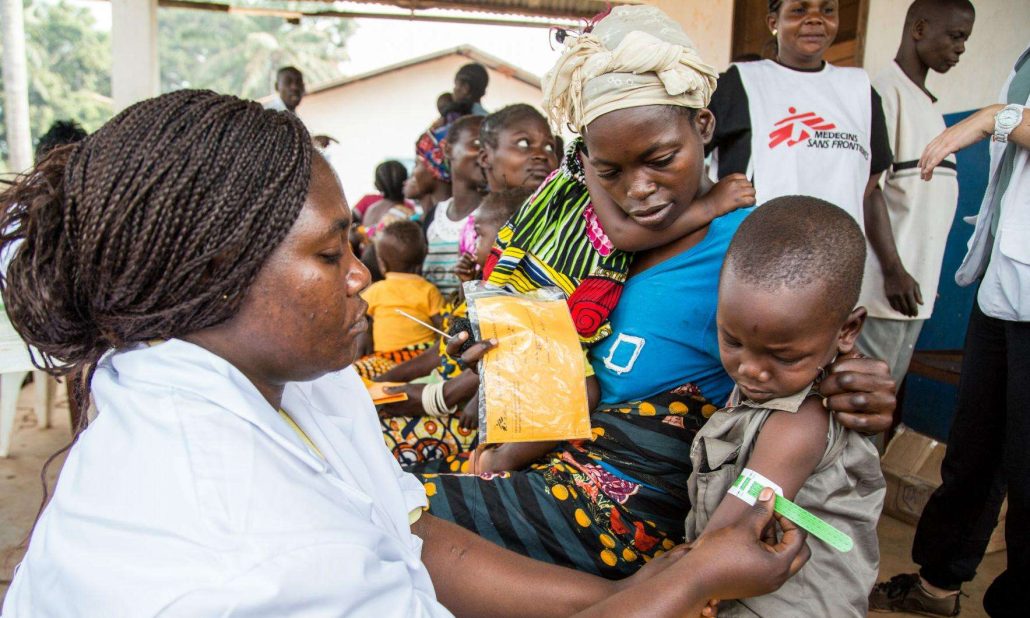
- Northern Nigeria worst hit as foreign aid dries up
- The true scale of crisis exceeds predictions — MSF
No fewer than 652 severely malnourished children have died in northern Nigeria in the last six months due to what health experts have described as a deepening nutrition crisis worsened by dwindling international aid and escalating insecurity.
Doctors Without Borders (Médecins Sans Frontières, MSF), an international medical charity, raised the alarm on Friday, warning that the region is facing an “unprecedented humanitarian emergency” as cases of severe acute malnutrition among children have surged by 208 per cent between January and June 2025 compared to the same period in 2024.
In a statement, the organisation said it was grappling with overwhelming needs across its treatment centres in northern states where insurgency, displacement, inflation, and funding cuts have converged to put the most vulnerable — children and nursing mothers — at extreme risk.
“Unfortunately, 652 children have already died in our facilities since the beginning of 2025 due to a lack of timely access to care,” MSF lamented.
The grim figures emerge amid drastic reductions in global humanitarian support. MSF pointed to significant aid cuts from the United States, the United Kingdom, and the European Union, which have directly impacted its capacity to respond to malnutrition emergencies.
“The true scale of the crisis exceeds all predictions,” said Ahmed Aldikhari, MSF’s Country Representative in Nigeria. “We are overwhelmed. Our teams are seeing more patients than our existing infrastructure and resources can handle.”
Aldikhari said that while MSF continues to provide life-saving treatment in its facilities, the growing needs far outpace the organisation’s current capacity.
He also noted that the situation is being worsened by a combination of factors including the spike in living costs, increased displacement due to armed conflict, and a persistent lack of access to basic healthcare in rural communities.
Equally troubling, he said, is the impact of malnutrition on pregnant and breastfeeding women. In a recent survey of 750 mothers attending MSF clinics, more than half were found to be acutely malnourished, with 13 per cent suffering from severe acute malnutrition — a life-threatening condition.
“These women are the cornerstone of family health and survival. When they are nutritionally compromised, the entire household is at risk,” Aldikhari added.
The crisis is compounded by worsening hunger across Nigeria. According to the United Nations World Food Programme (WFP), nearly 31 million people across the country are currently facing acute food insecurity, a record figure driven by inflation, conflict, and the effects of climate change on agricultural production.
Earlier this week, WFP’s Nigeria Country Director, David Stevenson, warned that the agency may be forced to halt emergency food and nutrition aid for 1.3 million people in the northeast by the end of July due to funding shortfalls.
“Our pipeline is running dry. Without immediate donor support, critical interventions for millions will be suspended,” Stevenson warned.
The looming suspension threatens to further strain the efforts of NGOs like MSF, which already bear the brunt of emergency care in some of the hardest-hit communities.
While the federal government has yet to formally respond to the figures released by MSF, humanitarian groups are calling for urgent intervention and a coordinated scale-up of nutrition support, especially as the lean season intensifies across many northern states.
MSF urged both domestic authorities and international partners to prioritise the nutrition crisis as a matter of national and global concern, warning that continued neglect could cost thousands more lives in the coming months.
“There is no time to waste,” the statement concluded. “What we are witnessing is not just a health emergency — it is a failure of collective responsibility to protect the most vulnerable.”